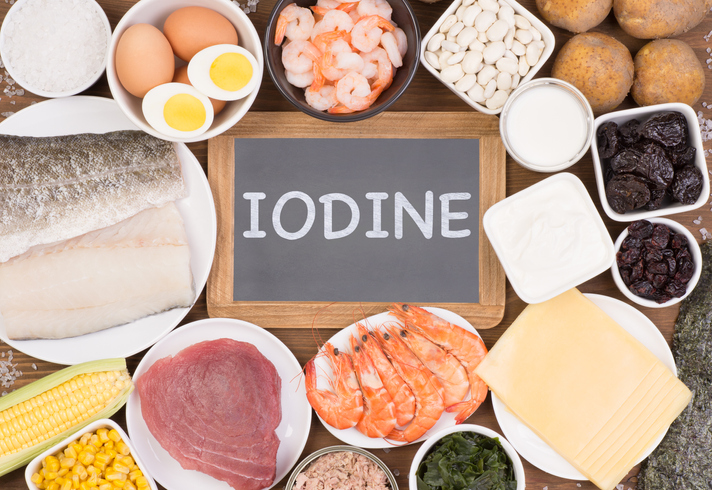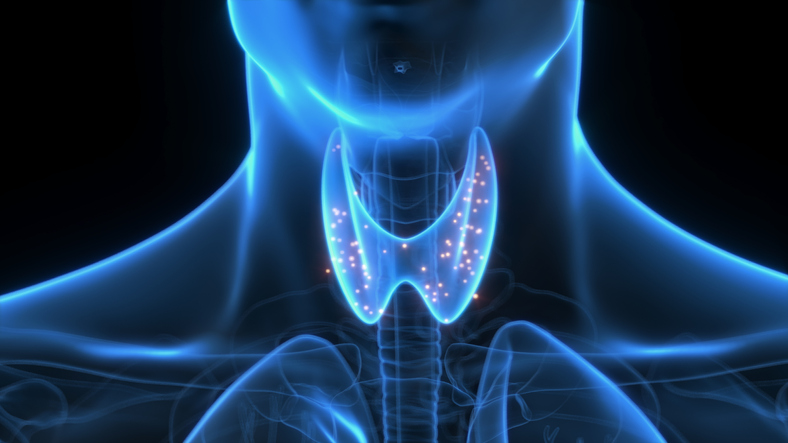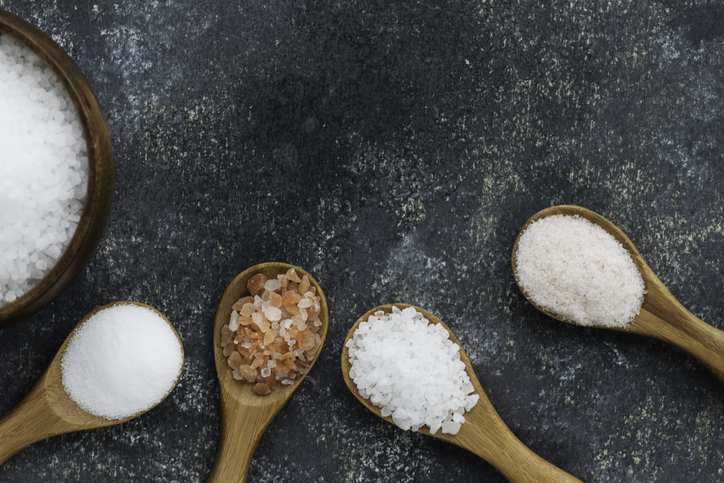Iodine May Not Be A “Popular” Nutrient, But It’s Key for Thyroid Health

By Joy Stephenson-Laws, JD, Founder
Magnesium. Potassium. Calcium. Zinc! These are usually the minerals that generally get the most attention.
Iodine is usually not talked about so much.
The body needs iodine for some of its most fundamental functions. For example, iodine can make the difference between a healthy child and one with intellectual disabilities, or between a sluggish, obese person and a lean, vibrant one.
Iodine is important, because it’s used to make two hormones: T4 (storage thyroid hormone) and T3 (active thyroid hormone). These are both made in the thyroid gland, located in the neck. “Low” thyroid, or hypothyroidism, can cause problems including fatigue and a slowed metabolism. Some people may develop hypothyroidism from an iodine deficiency. Insufficient iodine, insufficient thyroid hormones.
Too much iodine may lead to an overactive thyroid – hyperthyroidism.
Then there is the opposite issue which is hypothyroidism.
“Hypothyroidism, a symptom of severe iodine deficiency, is present in approximately 5% of the U.S. population,” (National Institutes of Health (NIH)).
The thyroid is a butterfly-shaped endocrine (hormone secreting) gland located in the lower front part of the neck. This organ plays a major role in the metabolism, growth and maturation of the human body. Thyroid hormones control how your body uses energy, so they affect nearly every organ in your body—even the way your heart beats. Without enough thyroid hormones, many of your body’s functions slow down.

“Iodine is found in soil and the ocean, which varies in amount and will affect how much of the mineral is contained in a food. Iodine is found mainly in animal protein foods and sea vegetables, and to a lesser extent in fortified foods like breads, cereals, and milk,” (Harvard T.H. Chan School of Public Health).
I would say one of the most popular sources of iodine in America is iodized salt. This is where it gets a little tricky, because Americans are overall known for having way too high of a salt intake which has been linked to high rates of hypertension in the United States.
Iodine deficiency in Americans may be relatively rare, however, there are some populations that need to be particularly mindful.
This is a topic I discussed years ago in the pH Labs blog – Is Iodine Deficiency On Your Radar? It’s kind of a “catch-22” if you do not navigate this carefully, because you do not want to consume too much salt and increase your risk of hypertension but you also do not want to risk an iodine deficiency. Many people are now using pink salt which has much less iodine.
(pH must-read - What Type of Salt Should You Be Sprinkling?)

“Historically, the implementation of salt-iodization programs worldwide has reduced the incidence of iodine deficiency, but 30% of the world’s population is still at risk,” according to one report recently published by the National Institutes of Health (NIH).
“Iodine nutrition is a growing issue within industrialized countries including the U.S. as a result of declining iodine intake, in part due to changing dietary patterns and food manufacturing practices.”
An example of these changing dietary patterns is people adopting a vegan diet which usually lacks iodine. Iodine is naturally found in animal foods such as seafood, eggs and dairy products. I am not suggesting that people should not eat a vegan diet if that is their choice, however, it is important to have iodine deficiency on their radar.
Symptoms of iodine deficiency include frustration, depression, intellectual disability, goiter [an enlarged thyroid gland], abnormal weight gain, decreased fertility, coarse skin, constipation and fatigue.
Multiple studies have concluded that low-salt, vegetarian diets are high risk for iodine deficiency. Pregnant women or women who are planning to become pregnant, need to be very mindful of iodine deficiency. According to the NIH, pregnant women need about 50 percent more iodine than women who are not pregnant.
(pH must-read - Why Iodine Needs To Be On Your Radar If You Are Pregnant or Planning to Be)
“Goitrogens are substances that interfere with the way the body uses iodine. They are present in some plant foods including soy and cruciferous vegetables such as cabbage, broccoli, cauliflower and brussels sprouts. For most people in the United States who get adequate amounts of iodine, eating reasonable amounts of foods containing goitrogens is not a concern,” reports the NIH.
If you are someone who follows a restrictive diet and eliminates entire food groups such as animal foods, it is a good idea to consult a competent healthcare professional regarding supplementation.
I think one of the biggest takeaways from this is to be aware of the importance of this important mineral. Be minful of where you are getting your iodine from. If you are getting most of your iodine from processed, salty foods, then I think it is time to focus on getting this essential nutrient from whole, nutrient-dense foods such as salmon (if you are not vegan or vegetarian) and kelp (which is a great plant-based source of iodine). Sea moss is another excellent source of iodine for people who are plant-based. For additional sources of iodine that are not just table salt, click here.
As always, I cannot stress enough the importance of routine nutrient testing. If the test reveals that you are low in iodine or any other essential vitamin or mineral, your doctor can work with you on making the necessary dietary changes and recommend quality supplements if necessary. As always, it is very important to talk to your doctor before taking any supplements or making drastic diet changes.
Enjoy your healthy life!
Disclaimer: This article is not intended to provide medical advice. Please consult with your doctor or another competent healthcare practitioner to get specific medical advice for your situation.
The pH professional health care team includes recognized experts from a variety of health care and related disciplines, including physicians, attorneys, nutritionists, nurses, and certified fitness instructors. This team also includes the members of the pH Medical Advisory Board, which constantly monitors all pH programs, products, and services. To learn more about the pH Medical Advisory Board, click here.







